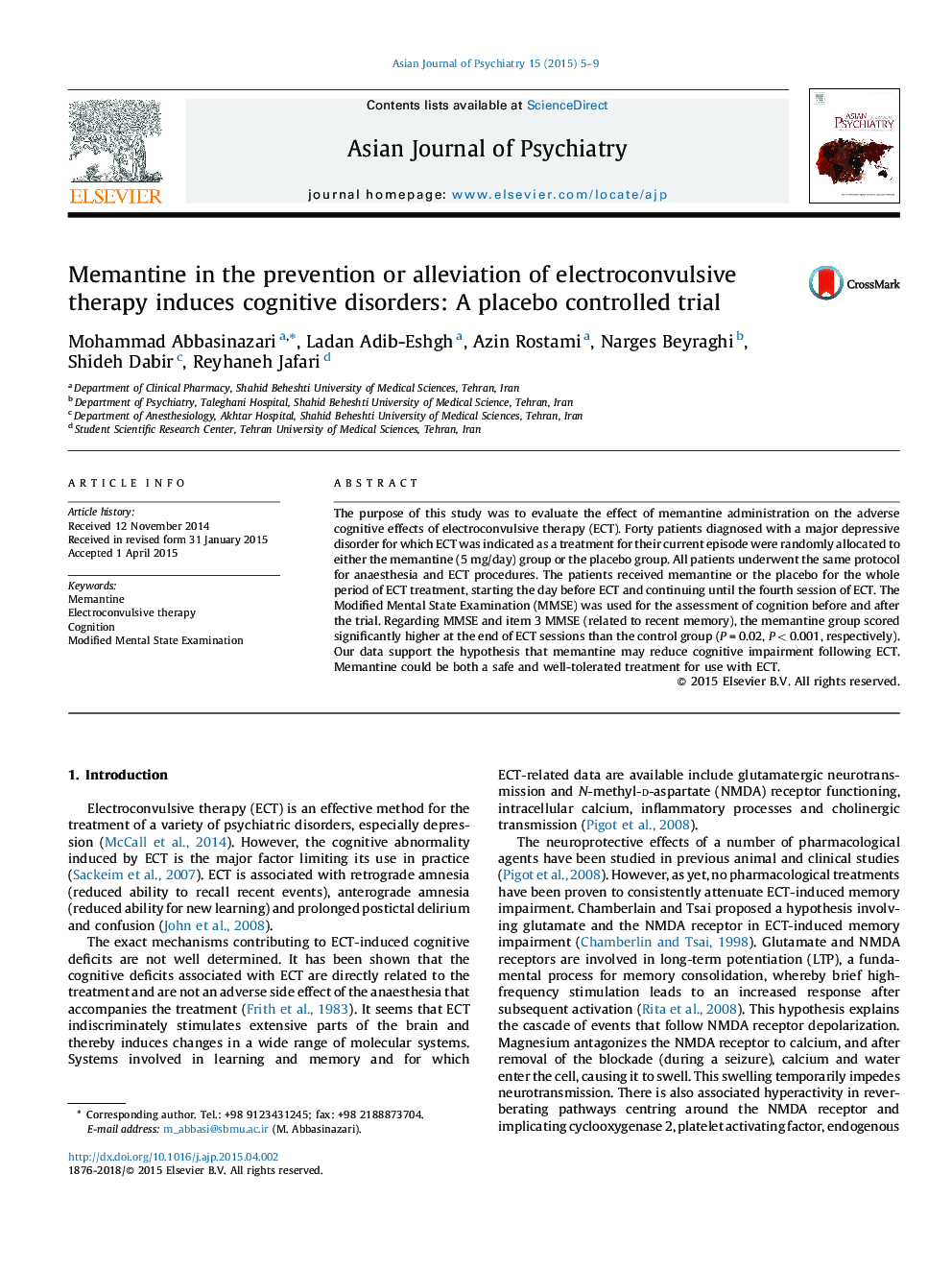| Article ID | Journal | Published Year | Pages | File Type |
|---|---|---|---|---|
| 317037 | Asian Journal of Psychiatry | 2015 | 5 Pages |
•The results of present study indicated that after the fourth session of ECT, patients who received memantine achieved significantly better scores on MMSE versus placebo (P = 0.02) and item 3 MMSE (P < 0.001).•Our data support the hypothesis that memantine may reduce cognitive impairment following ECT.•Memantine could be both a safe and well-tolerated treatment for use with ECT.
The purpose of this study was to evaluate the effect of memantine administration on the adverse cognitive effects of electroconvulsive therapy (ECT). Forty patients diagnosed with a major depressive disorder for which ECT was indicated as a treatment for their current episode were randomly allocated to either the memantine (5 mg/day) group or the placebo group. All patients underwent the same protocol for anaesthesia and ECT procedures. The patients received memantine or the placebo for the whole period of ECT treatment, starting the day before ECT and continuing until the fourth session of ECT. The Modified Mental State Examination (MMSE) was used for the assessment of cognition before and after the trial. Regarding MMSE and item 3 MMSE (related to recent memory), the memantine group scored significantly higher at the end of ECT sessions than the control group (P = 0.02, P < 0.001, respectively). Our data support the hypothesis that memantine may reduce cognitive impairment following ECT. Memantine could be both a safe and well-tolerated treatment for use with ECT.
